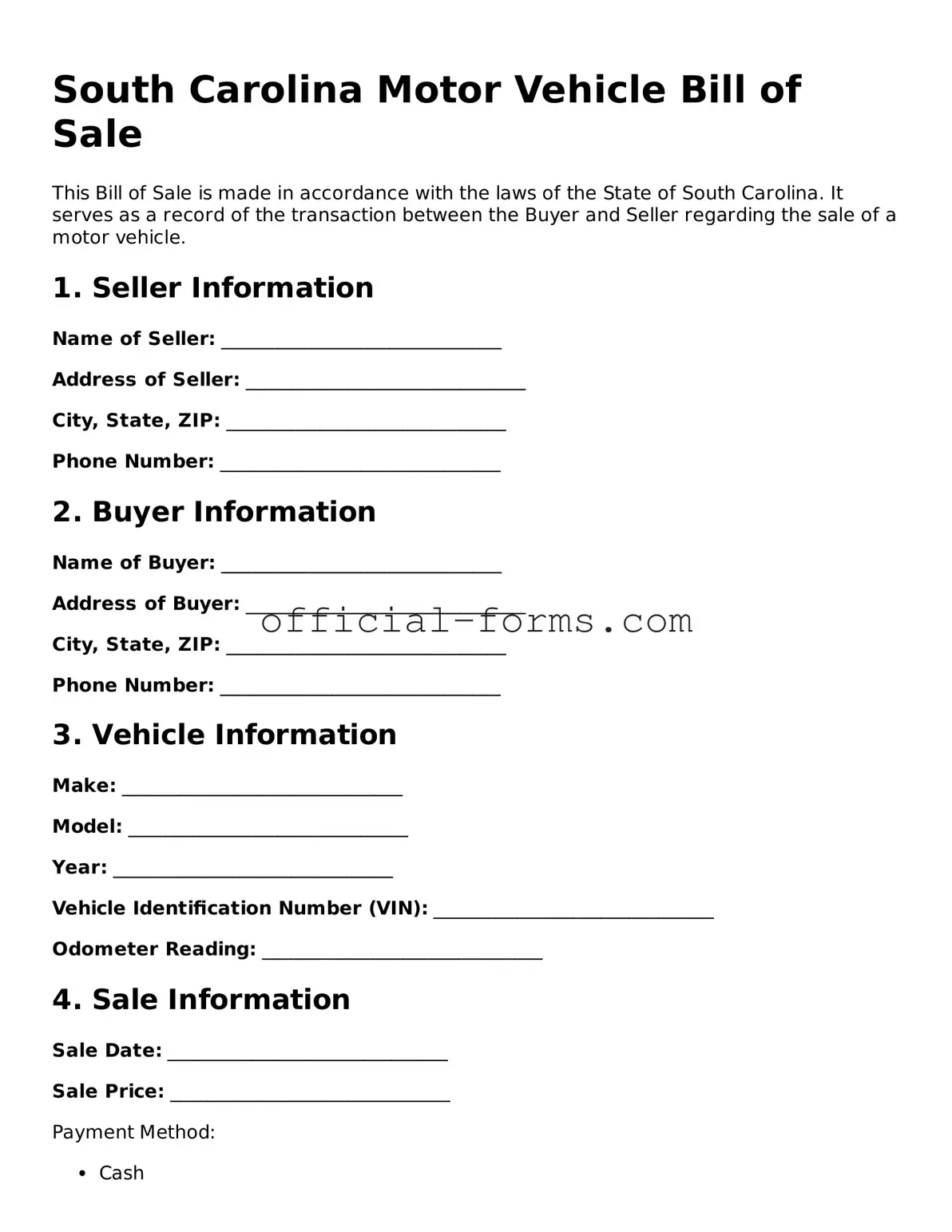Filling out the South Carolina Motor Vehicle Bill of Sale form can seem straightforward, but many people make common mistakes that can lead to complications later on. One frequent error is failing to provide complete information about the vehicle. This includes the Vehicle Identification Number (VIN), make, model, and year. Omitting any of these details can create confusion and may even invalidate the sale.
Another mistake often made is not including the correct names and addresses of both the buyer and seller. It's crucial to ensure that all parties are accurately identified. If any information is misspelled or incorrect, it could lead to issues with title transfer and registration.
Many individuals also overlook the importance of the sale price. Listing an inaccurate amount can affect taxes and fees associated with the sale. It’s essential to state the exact sale price to avoid future disputes or complications with the Department of Motor Vehicles (DMV).
Some sellers forget to sign the form. This might seem minor, but without a signature, the document is not legally binding. Both the buyer and seller must sign the Bill of Sale to confirm the transaction.
Additionally, people sometimes fail to include the date of the sale. This detail is important for record-keeping and can be crucial if any legal issues arise later. The date helps establish when the ownership of the vehicle officially changed hands.
Another common oversight is not providing a copy of the Bill of Sale to the buyer. After the transaction, the seller should give the buyer a signed copy for their records. This serves as proof of purchase and can be necessary for future registration or title issues.
Some individuals neglect to check for liens on the vehicle. If there are outstanding debts associated with the car, the buyer may face unexpected challenges. It’s wise to ensure that the title is clear before completing the sale.
Many people also fail to double-check the form for errors before submitting it. Simple typos or mistakes can cause delays in processing. Taking a moment to review the information can save time and hassle in the long run.
Another mistake is not understanding the implications of the Bill of Sale. This document is not just a receipt; it serves as a legal record of the transaction. Buyers should be aware of their rights and responsibilities after the sale, and sellers should understand their obligations regarding disclosures.
Lastly, some individuals may not realize that the Bill of Sale is a requirement for registering the vehicle in the new owner's name. Skipping this step can lead to complications when attempting to register the vehicle with the DMV. Ensuring that the Bill of Sale is properly filled out and retained is crucial for a smooth transition of ownership.

